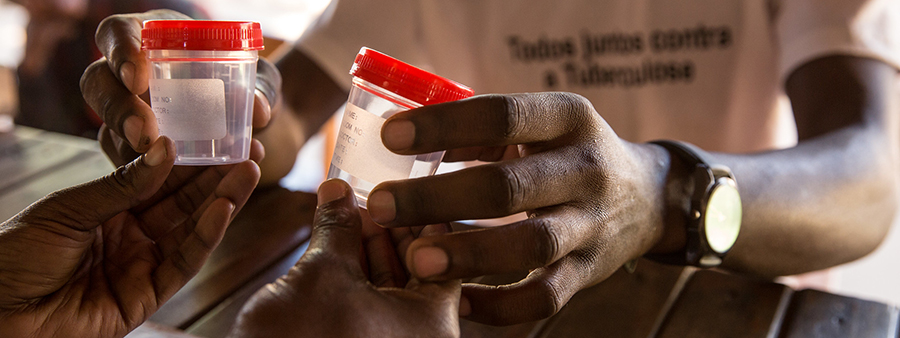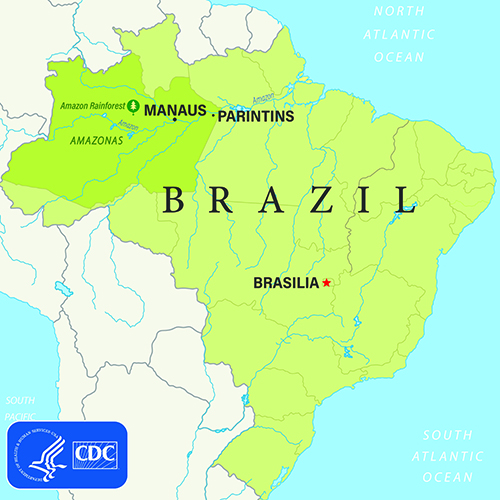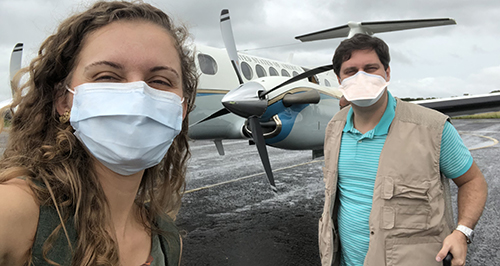CDC’s Technical Expertise and Partnerships Promote Health Security and Global Good

CDC supports Mozambique laboratory capacity for TB diagnosis. Credit: Ricardo Franco/CDC.
CDC’s Center for Global Health (CGH) works through CDC Country Offices in more than 60 countries, and with CDC experts from across the agency to provide specialized scientific and program support to bilateral country partners, the World Health Organization (WHO) and other multilateral institutions, and to other U.S. government agencies.
As the nation’s lead public health agency, CDC is uniquely positioned and leads many critical aspects of the U.S. Government-wide effort to address the world’s leading global health challenges. Drawing on the CDC’s skilled workforce, and the decades of experience and lessons learned from addressing some of the world’s toughest global health challenges, CGH uses data-driven, locally appropriate approaches that are constantly informed by and adapted based on the latest innovations and the best science available.
From its inception, CGH has supported infectious disease outbreak response, elimination, and eradication efforts in the U.S. and across the globe. Through partnerships, CDC enhances country capacity in key areas—addressing the leading causes of death and disease worldwide, including HIV, TB, malaria, and vaccine preventable diseases, and working with countries to respond to and better prepare for outbreaks and pandemic threats.
In all aspects of our global work, CGH proactively partners with ministries of health, local implementing organizations, and multilateral partners. Today, CGH has more than 1,700 in-country staff around the world working directly with ministries of health, local partners, WHO, and others to maximize global health impact—saving lives, improving health, and addressing disease outbreaks at their source.
All of CDC’s global work prioritizes country ownership, and CGH deliberately works to strengthen core public health capabilities and services around the world. Led by country offices, CGH provides peer-to-peer support to ministries of health and others on the ground, strengthening governments’ public health systems and response to health threats. CDC also provides support from headquarters to partner countries on a wide range of shared priorities.
CDC’s country-focused technical assistance is:
- Driven by science, data, and what works
- Done by working closely with in-country partners who can own the capacity gains achieved
- Designed to address needs identified by collaborators and in-country partners
CDC Experts Hunt for COVID-19 in the Rain Forest of Brazil
CDC launched an agency-wide response to the COVID-19 pandemic on January 21, 2020. Since the earliest days of the pandemic, CDC has been supporting prevention, preparedness, and response efforts globally, in partnership with public health agencies, ministries of health, and multilateral and non-governmental organizations worldwide. CDC’s work helps frontline healthcare workers, communities, and the public protect themselves and save lives. CDC has supported well over 60 countries in their efforts to prevent, detect, and respond to COVID-19 in collaboration with other U.S. government agencies and international partners. CDC activities are designed to enhance COVID-19 response capabilities, while simultaneously building longer-term, sustainable capacity for countries’ response to highly communicable diseases that we know will continue to threaten health outcomes well into the future.

“My global work with the U.S. President’s Emergency Plan for AIDS Relief prepared me to deal with the nuances and sensitivities of scientific and international collaborations. Building relationships and trust with local partners and authorities, who ultimately have ownership of the situation, is essential to be welcomed and successful.”
The first wave of COVID-19 in early 2020 overwhelmed the health system in Manaus, the capital of Amazonas, Brazil’s largest state. The second wave, which started in December 2020, was even worse. By January 2021, there were not enough hospital beds, medicine, or oxygen for those who needed it. To support the Ministry of Health’s efforts in Brazil, CDC sent a team of Portuguese-speaking epidemiologists and laboratory experts to work with local partners there. Their goal was to learn what was fueling the rapid spread of COVID-19 and conduct a public health investigation.
Initially, the CDC team faced many challenges, including getting personal protective equipment and testing supplies and getting into the community where they could begin the investigation. After meeting with local health officials, the team planned a journey to the remote city of Parintins, located on an island in the middle of the Amazon rain forest.
In Parintins, the team went to the houses of recently diagnosed people to interview and test their families to find out whether a new strain of coronavirus (referred to as P.1.) was fueling the new outbreak. In less than 72 hours, CDC and local partners talked to and tested 90 people. Fifty-four tested positive for SARS CoV-2, the virus that causes COVID-19. Of the 45 samples that underwent genetic sequencing, 31 (69%) had P.1.
Analyses of the investigation in Parintins is ongoing as of January 2022, but through this work, CDC helped to establish that the P.1. variant spread rapidly there.

Drs. Juliana de Fatima da Silva, CGH Division of Global HIV and TB, (left) and Roberto Jorge Freire Esteves, CDC Regional Office in Brazil, (right) stand near a U.S. Air Force plane used during a COVID-19 outbreak investigation in remote parts of Brazil. Credit: Juliana de Fatima da Silva/CDC.